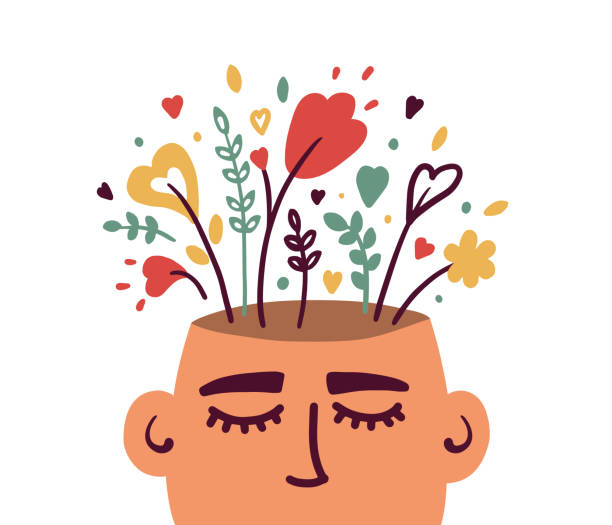Mental Well-Being
How To Achieve A Healthy Mindset For Overall Health
Developing a healthy mentality is critical for overall wellness. Our attitude has the power to influence our ideas, feelings, and behaviors, all of which have an impact on our physical and mental health. A healthy mindset can help us deal with stress, develop resilience, and strengthen our relationships.
To develop a healthy mindset, we must emphasize positive thinking, self-compassion, and self-care. Positive thinking entails viewing obstacles as opportunities and cultivating gratitude. Self-compassion entails treating oneself with kindness, acceptance, and understanding. Self-care entails taking care of our physical, emotional, and mental health through adequate rest, exercise, and diet.
By fostering a healthy mentality, we can improve our quality of life and lower our chances of acquiring mental health issues like anxiety and depression. In this article, we’ll look at practical techniques and strategies for developing a healthy mentality, which can help us live happier, healthier, and more satisfying lives.

Establishing a Positive Mindset
Developing a happy outlook is critical to general health and well-being. It entails developing a mental attitude that emphasizes positive ideas, feelings, and behaviors. In this section, we’ll look at ways to adopt a positive mindset and improve our mental health.
Understanding Mindset and Mental Health
Our thinking has a tremendous impact on our mental health. It is the set of beliefs and attitudes that influence how we view and react to the world around us. A healthy mindset can contribute to better mental health results, such as less stress, anxiety, and depression.
Carol Dweck, a psychologist, coined the term “growth mindset,” which emphasizes the view that we can improve our abilities and intelligence through hard effort and devotion. This thinking pushes us to accept difficulties and see failure as an opportunity for growth.
Cultivating Optimism and Gratitude
Optimism and thankfulness are significant motivators for developing a positive mindset. Optimism entails focusing on positive results and trusting that everything will work out in the end. Gratitude is the recognition and appreciation of the positive things in our lives.
Affirmations can help you create optimism and thankfulness. These are positive phrases that we say to ourselves in order to reinforce positive thoughts and attitudes. For example, we could say “I am capable of achieving my goals” or “I am grateful for the people in my life who support me.”
Overcoming Negative Self-Talk
Negative self-talk can be a major impediment to cultivating a positive mindset. It involves an inner voice that criticizes and destroys our self-esteem and worth. To overcome negative self-talk, challenge these beliefs and replace them with positive ones.
Mindfulness is one strategy for overcoming negative self-talk. This entails paying attention to our thoughts and emotions without passing judgment. By examining our thoughts without becoming engrossed in them, we can learn to detect and replace negative self-talk with positive self-talk.
To summarize, developing a positive mentality entails knowing our mindset and mental health, nurturing optimism and thankfulness, and overcoming negative self-talk. We may improve our mental health and well-being by changing our mindsets and practicing optimism.

Incorporating Healthy Habits
In order to acquire a healthy attitude and general health, we must include good behaviors into our daily lives. Making minor lifestyle modifications can help us enhance our physical and emotional health. In this section, we’ll talk about the value of routine and breaks, physical activity and exercise, diet, and sleep.
Importance of Routine and Breaks
Creating a routine can help us stay organized and less stressed. It is critical to allocate time for work, exercise, and relaxation. However, it is also critical to take pauses during the day to avoid burnout. Taking a little walk or engaging in deep breathing exercises can help us clear our brains and refresh.
Physical Activity and Exercise
Physical activity and exercise are essential for keeping a healthy body and mind. Regular exercise can help us manage stress, enhance our mood, and gain vitality. Whether it’s a daily walk or a weekly run, including physical activity into our lives can have a variety of health benefits. Exercise produces endorphins, which are natural mood boosters that can also help us sleep better.
Nutrition
Maintaining excellent health requires a well-balanced diet. A diet high in fruits, vegetables, healthy grains, and lean proteins can supply us with the nutrients we require to power our bodies and minds. It is critical to avoid processed foods and sugary beverages, which can contribute to inflammation and chronic diseases.
Sleep
Getting enough sleep is critical to our physical and mental health. Sleep allows our bodies to repair and replenish, and it is necessary for cognitive function. It is suggested that adults sleep for 7-9 hours per night. To increase sleep quality, create a nightly routine and avoid using electronic devices before bed. Melatonin, a sleep-regulating hormone, can also be found in foods like cherries and almonds.
By implementing healthy behaviors into our daily lives, we can improve both our physical and mental health. Small modifications, such as taking a short break, going for a walk, or eating a well-balanced meal, can have a significant impact on our overall health.

Managing Stress and Emotional Well-being
Stress is a natural part of life, but excessive stress can be detrimental to both mental and physical health. That’s why it’s critical to learn good stress management skills to help us deal with life’s obstacles. Here are some strategies for reducing stress and improving our emotional well-being.
Stress Management Techniques
There are numerous methods for managing stress, and what works for one person may not work for another. Some effective stress management approaches are:
- Exercise: Engaging in regular physical activity might help you reduce stress and relax.
- Deep breathing: Slow, deep breaths can assist the body relax and reduce stress.
- Time management: Planning and managing our time might make us feel more in control and less stressed.
- Social support: Talking to friends and relatives might make us feel more supported and lessen stress.
Mindfulness and Meditation
Mindfulness and meditation are techniques that can help us stay present and focused while reducing stress and anxiety. Mindfulness is paying attention to the present moment without judgment, whereas meditation is focusing the mind on a specific object or thought. Both techniques can assist to reduce stress and improve emotional well-being.
Developing Resilience and Coping Skills
Resilience is the ability to recover from stressful experiences, and it is a vital skill for stress management and emotional well-being. Some ways we can develop resilience and coping abilities are:
- Developing a positive attitude: Focusing on the good parts of a situation might make us feel more hopeful and resilient.
- Practicing self-care: Meeting our physical and emotional needs might make us feel more resilient and capable of dealing with stress.
- Seeking assistance when necessary: Getting aid from friends, family, or a mental health professional can help us build resilience and manage with stress.
By integrating these stress management approaches, mindfulness and meditation practices, and resilience-building abilities into our daily lives, we may improve our emotional well-being and establish a healthy mindset for general health.

Creating a Supportive Environment
Creating a supportive atmosphere is an important part of developing a healthy mentality. By surrounding ourselves with helpful people, creating a pleasant personal space, and engaging in meaningful activities, we can build a healthy mentality that fosters personal growth, fulfillment, and joy.
Fostering Supportive Relationships
Maintaining supportive relationships is critical for our mental and emotional health. We need people in our life to encourage us, give us positive feedback, and guide us through difficult situations. Surrounding ourselves with helpful people can also help us cope with stress and improve our general health.
To build supportive connections, we should look for people who share our values and goals. We can also connect with friends and family members who make us feel good about ourselves. It is critical to communicate openly and honestly with our loved ones, and to reciprocate their support.
Designing a Positive Personal Space
Our personal space can have a big influence on our mental and emotional health. By creating a nice personal space, we may foster relaxation, creativity, and enjoyment.
To create a healthy personal environment, we need think about our preferences and wants. We can integrate aspects that make us happy, such as plants, artwork, or comfortable furniture. We can also tidy our space and remove everything that causes stress or anxiety.
Engaging in Fulfilling Activities
Participating in gratifying activities is a fantastic approach to foster personal development, fulfillment, and joy. We should set aside time for hobbies and activities that make us happy while also encouraging us to study and grow.
To engage in satisfying activities, we should think about our interests and passions. We can join clubs or groups that share our interests, take classes to develop new skills, or volunteer for topics we are passionate about. Engaging in rewarding activities can improve our general well-being and foster a healthy mindset.
To summarize, maintaining a supportive environment is an essential component of developing a healthy mentality. Personal growth, contentment, and joy can be promoted by cultivating supportive connections, creating a positive personal space, and engaging in meaningful activities.
Conclusion
Prioritizing self-care became a cornerstone of my journey. Adequate sleep, regular physical activity, and nourishing my body with wholesome foods contributed not only to my physical health but also played a pivotal role in maintaining mental equilibrium. Establishing a healthy work-life balance and setting realistic goals allowed me to navigate life’s challenges with resilience and a sense of purpose.
Connecting with a supportive community and seeking professional guidance when needed has been invaluable. Whether through engaging conversations with loved ones or consulting with mental health professionals, the power of human connection in fostering a healthy mindset cannot be overstated.
In conclusion, the pursuit of a healthy mindset is an ongoing and enriching process that intertwines with every aspect of life. It’s a commitment to self-discovery, self-compassion, and the continual cultivation of habits that nurture mental well-being. As I continue on this journey, I am empowered by the knowledge that a clear mind is not only essential for mental health but serves as a cornerstone for a fulfilling and balanced life.
Journey of self discovery


